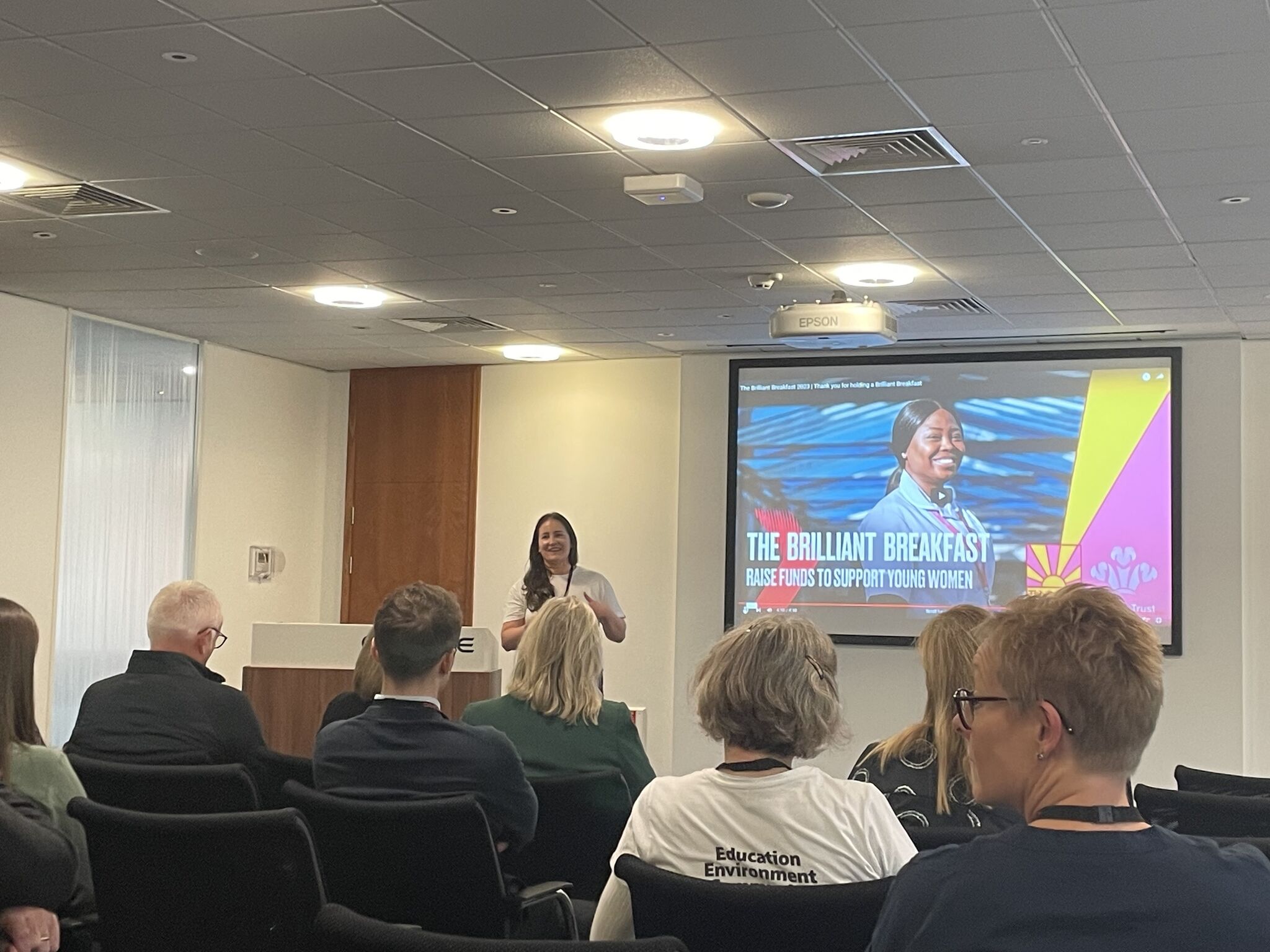When we think of a career journey, most of us imagine the usual route of school and college, followed by joining the workforce. Maybe there are internships or work experience along the way, but it’s a well-worn route with few surprises for most of us.
However, this ignores the experiences of people who have walked a different path. People like Tracy Caldwell.
Tracy joined Oracle in 2018 when she came on board as a senior talent advisor. After years of hard work, she’s risen to senior principal where she uses her experience to recruit tech talent across EMEA.
Traumatic
It’s a great career outcome, but it’s a long way from where she started—leaving school at 16 due to pressures at home compounded by undiagnosed ADHD.
“My parents’ marriage broke down due to my father’s alcoholism and I essentially became someone who was caring for my dad because I was living with him,” she shares. “There were a lot of traumatic things happening at home. So, trying to manage my schoolwork became a real challenge.”
Tracy found that the education services available to her at the time simply weren’t set up to handle situations like this.
“Nobody asked, ‘How come this student who is normally in school, suddenly isn’t in school?’” she explains. “So, I was left to my own devices.”
Refuge
She attributes* some of her difficulties at school to ADHD. Although she could “hyper-focus” on subjects like English, she struggled to engage with others, especially math. This left her seeking refuge in interests outside school—like horse riding.

“I just wanted to ride and not go to school and not think about it. Riding was my place where I could relax, almost like stimming.”
Stimming can be anything from body movements to complex activities which some neurodiverse people use to reduce anxiety.
Tracy had been riding since she was just three, but the hobby took on new meaning when her grandmother introduced her to the Riding for the Disabled Association. Some of her earliest working experiences were volunteering at one of their riding centers. The pursuit has stayed a lifelong passion and she credits her time there for making her aware of the spectrum of neurodiverse experiences.
Harnessing ADHD
Today, she’s learned to harness her unique abilities. “ADHD has worked in my favor in my career as I’ve moved forward, particularly the hyper-focusing and being able to get things done when I put my mind to it,” she reveals.
By the time Tracy was 16, she had virtually left the school system and was living in a much more independent way.
“I did try and return to school in the 6th form to re-sit my GCSEs. It just wasn’t working for me.”
She stopped attending school completely soon after and set out on a new journey off the academic track. Surprisingly, her parents were supportive.
Being proactive
“I’m fortunate in that my family very much allowed me to be my own person. There wasn’t pressure like ‘you must go to school’. It wasn’t like I was just sitting around the house doing nothing. I had a couple of part-time jobs. I was being proactive and that’s something that my parents have always instilled.”
While Tracy loved horses and her job at the equestrian center, she realized that it wouldn’t be enough to fuel her ambitions. Corporate life beckoned.
“I wanted to have my own horse and a lifestyle to support that, and unfortunately the equestrian industry doesn’t pay very well. So, I got a job doing data entry and I did that for a couple of years.”
She leveraged this into a lead position in the insurance industry but felt the rewards didn’t scale. “I remember sitting there and thinking, ‘OK, I work hard, and I get paid the same as everybody else, how can I change this?’”
Upward trajectory
Sales, with its dynamic pace and focus on earnings, turned out to be her dream destination. “I started working in tech recruitment and focused a lot on telecoms and technology. It just really spiked my interest and ended up shaping my career as a tech recruiter.”

She’s been on an upward trajectory ever since but still remembers struggling to find a foothold in the industry. This is what drives her mentorship efforts with The Girl’s Network—an organization that inspires and empowers girls from less advantaged communities.
Tracy also volunteers through Oracle’s volunteering program with The Prince’s Trust where she runs career workshops and shares her story with young people.
“I didn’t have any mentors, which is why I love to mentor now,” she explains. This is along with chairing Oracle UK’s Neurodiversity Network which promotes a more open and accessible workplace for neurodiverse people.
Passions, abilities, and goals
This all gives her a unique perspective that she uses to help young people get into tech. Ironically, she likes to explain it through one of her least favorite school subjects—math!
“I love doing the old-fashioned Venn diagram with the career workshops that I run with various charities and the young people I mentor—thinking about your strengths and the things that you want to do,” she explains.
Helping others find that overlap between their passions, abilities, and goals is hugely satisfying for Tracy—as is explaining the possibilities of careers in tech. “I always say to just try different things. The beauty of tech is it’s so rapidly changing, and you don’t have to stay in one area,” she shares.
Fighting for equity
She also advises mentees to seek out ways to get as much experience as possible and points to free training like Oracle Academy as treasure troves just waiting to be tapped into.
Tracy believes gender also has a part to play in accessing tech careers. Big steps have been taken to level the playing field, but there’s a lot more to do—especially when fighting for equity for neurodiverse women. A new era of openness around neurodivergence is making this discussion easier, she finds.
“Women that are neurodivergent often are diagnosed late in life and often very good in technology-related roles due to their kind of problem-solving,” she observes.
Flexibility
However, she points to the largely male leadership she sees across the Fortune 100 as a sign that things need to change more. She feels the remote working revolution may move the needle and “enable women who are usually the caregivers in the family to have more flexibility with working.”
She also believes companies should explore hiring practices that look at the whole candidate rather than narrow skillsets. “Think about the soft skills and transferable skills rather than looking for someone that ticks all the boxes,” Tracy suggests.
Even the most talented people can doubt themselves at times. At its most extreme, this can snowball into imposter syndrome and a feeling that you don’t deserve your success. Tracy is only too familiar with the feeling—where it comes from and how to handle it.
Beating imposter syndrome
It all comes down to being yourself and finding a workplace like Oracle that can make that happen. With a foundation like this, people can be intentional about their growth and leave their doubts behind.
“I probably had that for a long time,” she shares. “And then something switched. I felt because I could be myself, I’ve gone ‘Yeah, this is me, I can do this’.
Tracy’s nomination as an emerging female leader at Oracle in 2022 has only bolstered her self-belief. “I think that’s always a good way to overcome imposter syndrome. Think about what you have achieved rather than what you haven’t and build on that. You have to be yourself, haven’t you? And sometimes. I think being in the right place where you can be yourself is the most important thing.”
Do you want to work for a company where you can thrive while being yourself? Learn how we embrace diverse abilities and explore our open roles today.
*Listen to Tracy’s feature on the podcast Diversity & Inclusion: Satisfying the Tickbox?
